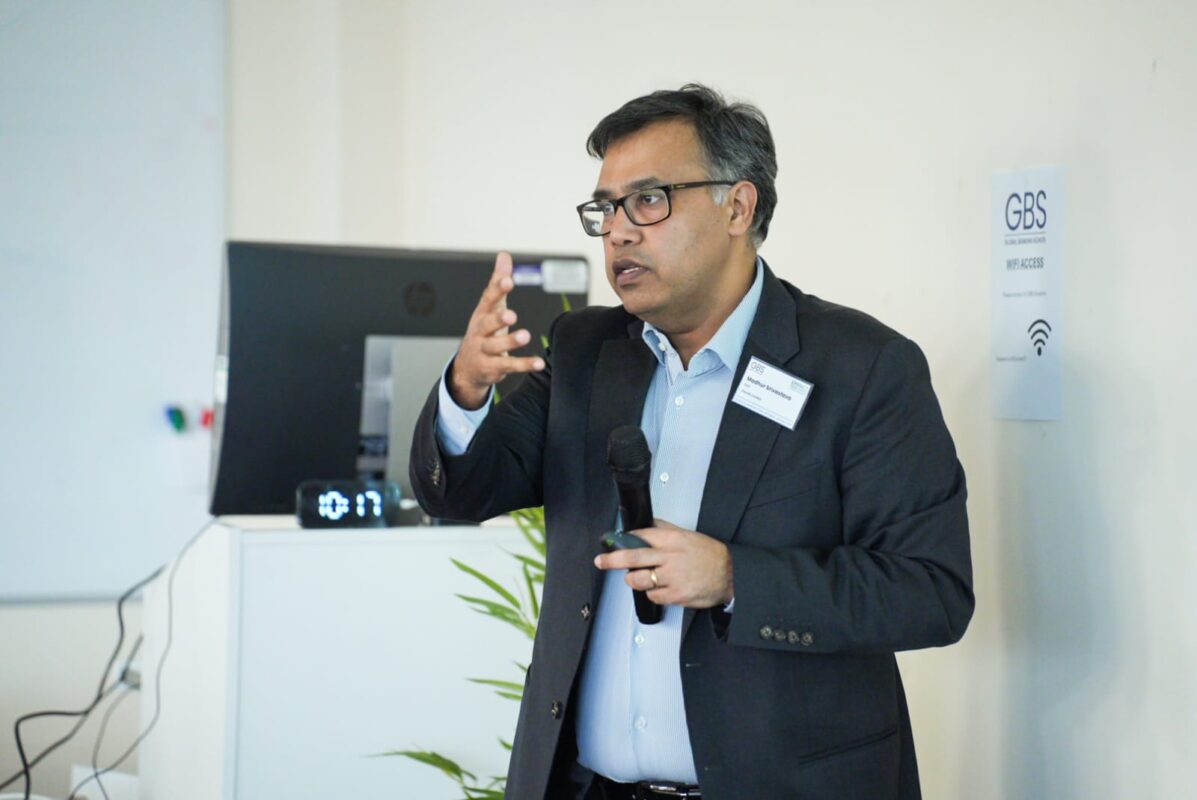City of Birmingham Unveils the UK’s Best Emerging HealthTech Advances

- The National HealthTech Series hosted its latest event in Birmingham this month, showcasing innovative startups driving advanced health technology, including AI-assisted diagnostics, wearable devices and revolutionary educational tools for healthcare professionals
- Health stakeholders drawn from the NHS, universities, industry and front-line patient care met with new and emerging businesses to define the future trajectory of healthcare technology as part of a renewed national health system
- The event was hosted in central Birmingham by Global Banking School (GBS) and supported by NIHR HealthTech Research Centre in Accelerated Surgical Care and key industry sponsors DocHQ and Rosely Group, powered by Empact Ventures
A unique showcase of world-leading health technology created and developed in the UK landed in central Birmingham this month, bringing the ‘art of the possible’ in healthcare to the country’s second city.
The National HealthTech series of events, co-designed by Empact Ventures, was held in Leeds, London, and Birmingham not only to promote and accelerate the work of innovative startup businesses in medicine but also to provide a forward look at the health service of the future, where AI is fully integrated into all aspects of patient care, from disease detection and diagnosis to clinical treatment and therapy.
Speakers joined from mydentist UK, Sheffield Children’s Hospital NHS Foundation Trust, Fidsy, MTX Europe, PD-M, Solventum, Birmingham Hospice and others in roundtable discussions. These included Integrating AI in Healthcare Systems and Skills, Training and Capacity Building in the Healthcare sector chaired by GBS Entrepreneurship and Employability team.
Over the past five years, Birmingham has emerged as one of the UK’s most recognised hubs for startup businesses due to the constant supply of talent from the city’s renowned universities and educational institutions, its connectivity with other UK cities, and the significantly lower costs associated with office and manufacturing space compared to London and other major UK destinations.
“In many ways, Birmingham is a natural home for the HealthTech Series of events,” said Dr David Bozward, Director of Employability and Entrepreneurship, Global Banking School (GBS), which hosted the event at its central Birmingham campus.
“We are living through a fundamental shift in the way people receive healthcare in the UK, as an increased number of services take advantage of the possibilities of AI and care transitions heavily into community and home settings. By bringing some of the UK’s foremost health innovators together, our goal is to foster an exciting environment in which to debate and get excited about the future of health delivery.”
‘As a Birmingham-born individual, it has been fantastic to bring the National HealthTech Series to the city and unite stakeholders across the healthcare, innovation, education and small business sectors to explore collaboration”, said Kosta Mavroulakis, Founder and CEO of Empact Ventures, which coordinates the events.
The National HealthTech Series is a group of events bringing together experts in the health technology field to review the critical issues affecting healthcare delivery in the UK. This special event, the third in the series across the UK thus far, delivered a forum for health stakeholders to better define the role of technology in a modern NHS alongside the private healthcare sector. The growing sophistication of personal data analysis alongside AI-supported healthcare technology is keeping pace with the UK Government’s agenda to migrate as many health services as possible out of clinical environments and into the places where individuals live their lives.
Patients and citizens are increasingly taking ownership of their personal healthcare at home and the workplace. The increasing sophistication of personal data analysis alongside AI-supported healthcare technology is keeping pace with the UK Government’s agenda to migrate as many health services as possible out of clinical environments and into the places where individuals live their lives.
“We are making massive strides in utilising remote care principles and advanced technology to help people track their health status, recover from injury and restore full health while they conduct their lives at home and work,” said Madhur Srivasta, Chief Executive Officer of DocHQ, which provides AI-backed technology that tracks the movement of individuals undergoing physiotherapy and supports treatment plans via video consultation in the home, while tracking the individual’s progress digitally.
“The vision of a healthcare system which is more accessible, empowers our patients to take ownership and control of their treatment while delivering cost-effective care is now a reality, thanks to the continued pace of advancement in AI and remote care. This is a major sea-change in the way we consider the needs of the individual and opens the pathway to a healthcare service which balances clinical need in-hospital with recovery and follow-up at home and at work.”
Innovative businesses bringing their technology to the event included Medwise AI, which has developed a unique AI-powered question-and-answer tool for medical professionals, and ND Axon, a company focused on using advanced technology to bridge the gap between healthcare and the workplace for neurodiverse individuals.
“It’s such an exciting time for healthcare as we start to recognise the true potential of next-generation technology in preventing and combating disease,” said Vee Mapunde, Co-Director, NIHR HealthTech Research Centre in Accelerated Surgical Care and supporter of the event series.
“Quicker diagnosis is one of the major goals of the technology revolution we are witnessing. By addressing current diagnostic limitations via technology, we are not only helping ensure people get the treatment they need more rapidly but also exerting potential cost-benefits to the healthcare system by migrating patients out of health services more quickly and effectively. The Birmingham event brought this agenda to life.”











Responses